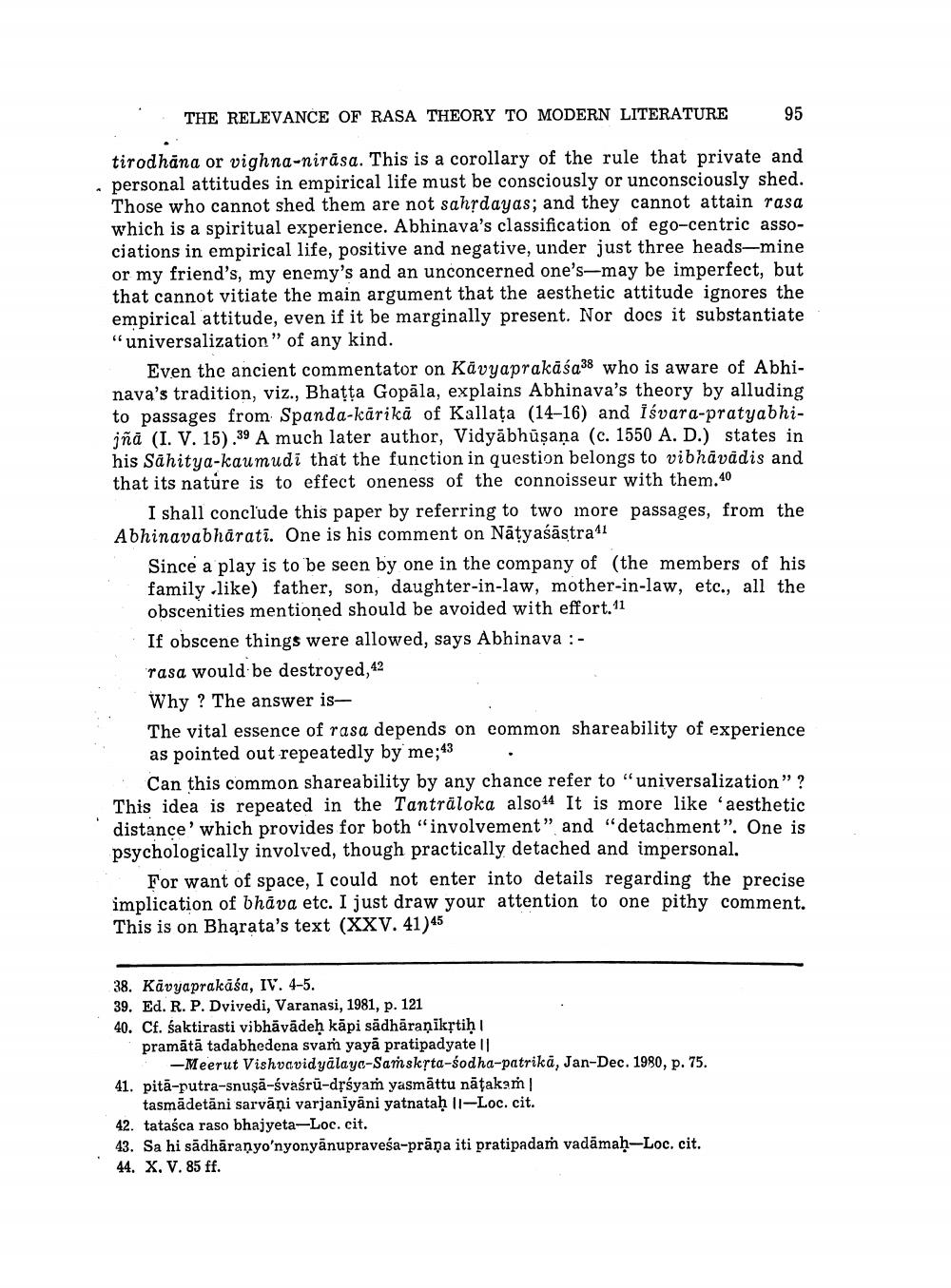________________
THE RELEVANCE OF RASA THEORY TO MODERN LITERATURE
95
tirodhana or vighna-nirāsa. This is a corollary of the rule that private and personal attitudes in empirical life must be consciously or unconsciously shed. Those who cannot shed them are not sahşdayas; and they cannot attain rasa which is a spiritual experience. Abhinava's classification of ego-centric associations in empirical life, positive and negative, under just three heads-mine or my friend's, my enemy's and an unconcerned one's may be imperfect, but that cannot vitiate the main argument that the aesthetic attitude ignores the empirical attitude, even if it be marginally present. Nor does it substantiate "universalization" of any kind.
Even the ancient commentator on Kavyaprakāśa38 who is aware of Abhinava's tradition, viz., Bhatta Gopāla, explains Abhinava's theory by alluding to passages from Spanda-kārikā of Kallața (14-16) and iśvara-pratyabhijñā (I. V. 15).39 A much later author, Vidyābhūşaņa (c. 1550 A. D.) states in his Sahitya-kaumudi that the function in question belongs to vibhāvådis and that its nature is to effect oneness of the connoisseur with them.40
I shall conclude this paper by referring to two more passages, from the Abhinavabhārati. One is his comment on Natyaśāstral
Since a play is to be seen by one in the company of the members of his family like) father, son, daughter-in-law, mother-in-law, etc., all the obscenities mentioned should be avoided with effort.11 If obscene things were allowed, says Abhinaya :rasa would be destroyed, 42 Why ? The answer isThe vital essence of rasa depends on common shareability of experience as pointed out repeatedly by me;43 .
Can this common shareability by any chance refer to "universalization”? This idea is repeated in the Tanträloka also44 It is more like 'aesthetic distance' which provides for both "involvement" and "detachment”. One is psychologically involved, though practically detached and impersonal.
For want of space, I could not enter into details regarding the precise implication of bhāva etc. I just draw your attention to one pithy comment. This is on Bharata's text (XXV. 41)45
38. Kavyaprakāśa, IV. 4-5. 39. Ed. R. P. Dvivedi, Varanasi, 1981, p. 121 40. Cf. saktirasti vibhāvādeh kāpi sādhāraņikstiņi pramātā tadabhedena svar yayā pratipadyate !
-Meerut Vishvavidyalayc-Sańsksta-sodha-patrikā, Jan-Dec. 1980, p. 75. pitā-putra-snuşā-śvaśrū-drśyam yasmättu nāțakam
tasmādetāni sarvāṇi varjanīyāni yatnataḥ 11-Loc. cit. 42. tataśca raso bhajyeta-Loc. cit. 43. Sa hi sādhāraṇyo'nyonyānupraveśa-prāņa iti pratipadam vadāmaḥ-Loc. cit. 44. X. V. 85 ff.




